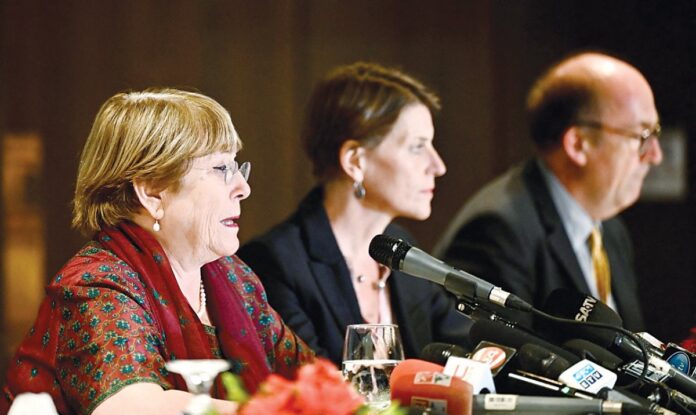DHAKA: UN High Commissioner for Human Rights Michelle Bachelet said on Wednesday that the repatriation of more than 1 million Rohingya refugees from Bangladesh is not yet possible due to the situation in Myanmar.
Although Bangladesh is not a signatory to the 1951 UN Refugee Convention, it has hosted and provided humanitarian support to the Rohingya Muslims who fled neighboring Myanmar during a military crackdown in 2017.
Most of the refugees live in dozens of cramped settlements in Cox’s Bazar District, a coastal region in the country’s southeast. Hosting the refugees costs Bangladesh about $1.2 billion per year.
Bachelet arrived in Bangladesh on Sunday for a four-day working visit — her first to the South Asian country.
Despite multiple attempts from Bangladesh in past years to advance a UN-backed repatriation process, the organization has yet to move forward with a plan.
“The conditions are not right,” Bachelet told reporters. “Repatriation must always be conducted in a voluntary and dignified manner, only when safe and sustainable conditions exist in Myanmar.”
The UN human rights chief spoke after meeting Bangladeshi Prime Minister Sheikh Hasina, who said that the Rohingya must go back home to Myanmar.
Hasina’s press secretary Ihsanul Karim told reporters that during the meeting, the prime minister had pushed for the repatriation process to finally begin.
“The Rohingyas are the nationals of Myanmar, and they have to be taken back,” he quoted Hasina as saying.
With the arrival of the Rohingya, Cox’s Bazar became the world’s largest refugee settlement. Few employment opportunities are available, sanitation is poor and access to education limited.
“The presence of Rohingyas in Bangladesh has created a number of security concerns for Bangladesh,” Prof. Delawar Hossain of the International Relations Department at the University of Dhaka, told Arab News.
Security in the camps came back into focus earlier this month when two refugee community leaders were shot dead, reportedly by an insurgent group active in the Cox’s Bazar camps that has been accused of killing scores of opponents.
Reports of criminal organizations using refugees as drug traffickers have also been on the rise.
International financial support for Bangladesh’s hosting of the Rohingya has fallen since 2020, multiplying the challenges the developing country battered by the COVID-19 pandemic is already facing.
“Any community with a number of 1.3 million people definitely is a pressure on the economy and society,” Hossain said, adding that a return to Myanmar is an “urgent need” for the Rohingya as only then will they be able to start to live normal lives.
He said: “We should do everything possible so that the repatriation starts, because this is the only solution that we have for the Rohingya crisis.”

